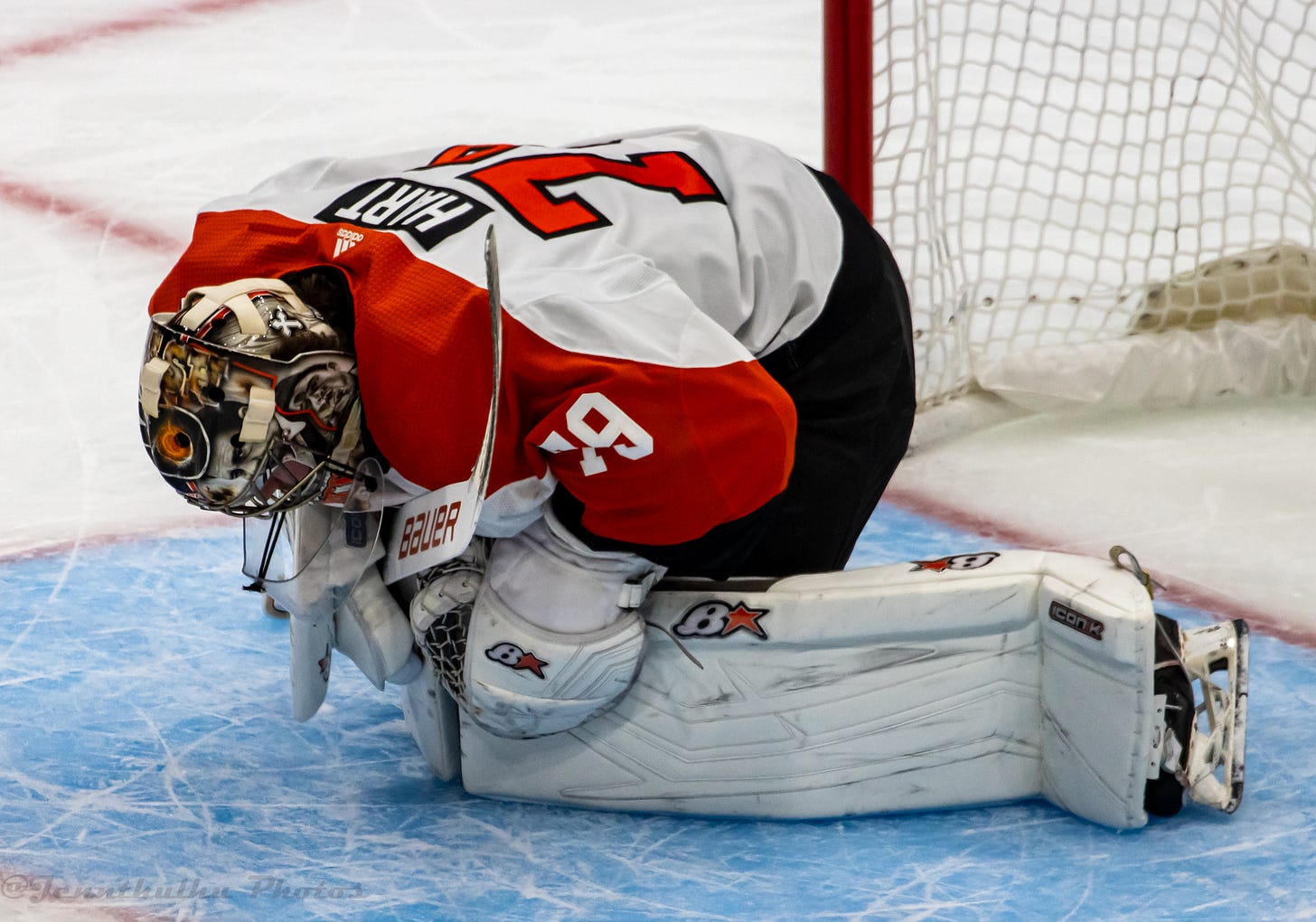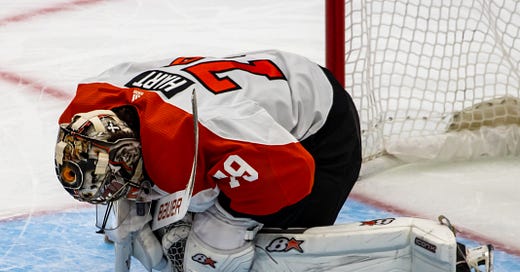
The Hockey Canada trial has been going on for two months now. And during that time, the Canadian media has meticulously covered every twist and turn that’s taken place in the London, Ontario courthouse.
Five men — Michael McLeod, Dillon Dubé, Alex Formenton, Cal Foote and Carter Hart — have been accused of sexually assaulting a twenty-year-old woman, who is only being identified as E.M., after a Hockey Canada gala in 2018.
All of them have pled not guilty and the judge is set to render a verdict on July 24.
And while I’ve been following the trial closely, I’ve been especially interested in how the media has been covering the story, and the way that the public has been reacting to it all.
Two years ago, Jordan and I made a series at Canadaland that focused specifically on the deep, systemic issues with hockey culture.
And what became incredibly clear to us is that most of the media and the powers-that-be in the hockey world don’t understand or are unwilling to acknowledge what’s going on in the sport.
During this trial, that’s become even more obvious. Because hockey doesn’t just have a problem with sexual violence. It has a problem with gang rape.
Between 1989 and 2018, there was, on average, one alleged case of gang rape by professional hockey players every two years. And those are just the accusations that went public.
And yet, every time this happens, the hockey world acts like it’s the first time. And the media tends to go along with it. Even when the press talks about the problem of sexual violence in hockey, they refuse to acknowledge the specificity.
A handful of journalists and researchers — foremost amongst them Laura Robinson, who has been covering this for years, — have tried to explain what’s really happening.
The truth is that, from a young age, many junior hockey players are hazed, beaten and sexually abused. And then are groomed by older players into engaging in group sex with their teammates. Sometimes these encounters are consensual for the girls and women involved. But too often, they’re not.
All of this broader context has been missing from much of the coverage around the Hockey Canada trial.
And that’s why I was relieved when I read a piece in The Globe and Mail by Andrea Werhun on this topic. Werhun is a writer and performer, best known for her memoir Modern Whore, which details her experience working as an escort and stripper. She was also a consultant on the most recent Academy Award Best Picture winner, Anora.
And Werhun’s piece digs into all of this necessary context. And she also focuses in specifically on one piece of testimony from the complainant, in which she describes taking on a “porn star persona” during that night in the hotel room, as a coping mechanism.
That quote became a cornerstone in the defence’s narrative disputing the allegations. And something that I’ve seen constantly brought up again and again in online comments that accuse EM of being a liar.
My conversation with Werhun isn’t about trying to evaluate the criminal guilt or innocence of the men who are on trial. We won’t be digging into the conflicting stories or analyzing the specific evidence.
This is about trying to understand the broader cycles of violence within men’s hockey.
Featured in this episode: Andrea Werhun
To learn more:
“Porn isn’t to blame for sexual assault” by Andrea Werhun in The Globe and Mail
“The Problem Hockey Won’t Name” from Canadaland COMMONS
“Anatomy of a scandal” by CBC’s The Fifth Estate
“Legal decision for the ‘Hockey Canada 5’ won’t come for weeks, but judgment can be rendered” by Dan Robson and Katie Strang in The Athletic
Support us at hatchetmedia.substack.com
The Hatchet is a podcast and newsletter dedicated to exposing power and money in Canada. We deliver important, original and fascinating journalism about how this country actually works.
Music: I dunno by grapes (c) copyright 2008 Licensed under a Creative Commons Attribution (3.0) license. Ft: J Lang, Morusque













Share this post